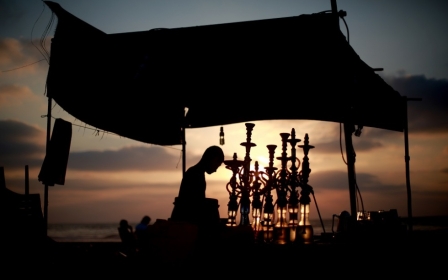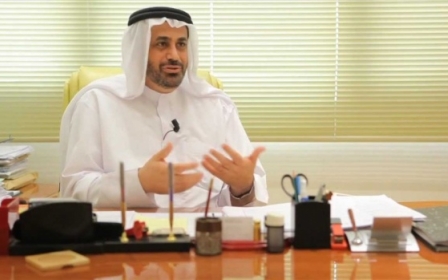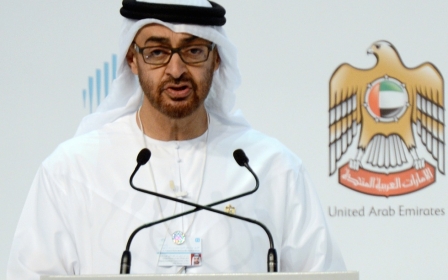UAE company offers Caribbean passports with property purchase

Property developers in the United Arab Emirates are offering potential new home owners passports for Antigua and Barbuda when they buy a villa, opening up fresh avenues for visa-free travel to a wide array of countries for Emirati citizens.
Al Jazeera reported on Tuesday that Sweet Homes – a company based in the emirate of Ajman – has incentivised its property portfolio by including Antiguan and Barbadian passports with certain luxury home purchases. A two bedroom villa costing 1.4mn dirhams ($380,000) and a four-bedroom home priced at 1.9mn dirhams ($517,000) comes with passports for the purchaser, his or her partner, dependent children and parents over the age of 65.
The incentive of having an Antiguan and Barbadian passport for Emiratis is that it allows visa-free or visa-on-arrival travel to 132 countries, compared with 77 countries for a UAE passport.
The offer applies to 600 of 1,500 units in the Ajman Uptown development, which Sweet Homes hopes will be completed in time for 2020.
“Ajman Uptown is the first project of its kind in the GCC region that allows the buyers […] to be eligible for citizenship, subject to due diligence and approval from [the] government of Antigua and Barbuda,” Sweet Homes chief executive Fahad Dero told Al Jazeera.
Dero said in the first 10 days of the offer he had found more than 1,000 “strong leads” and received 20 applications to take up the property and citizenship deal.
The government of Caribbean islands Antigua and Barbuda launched a “Citizenship-by-Investment” programme in 2013, in an attempt to boost an economy that received 63 percent of its $1.2bn gross domestic product from the tourism industry in 2013.
The initiative offers anyone the opportunity of becoming a citizen for a donation of $200,000 to the country’s National Development Fund (NDF).
Sweet Homes includes the $200,000 donation in the hefty price-tag for its two and four bedroom villas, effectively cutting revenues in half with each property sale. Antigua and Barbuda Prime Minister Gaston Browne told Al Jazeera the Emirati company keeps 10 percent of the donation in exchange for recommending “wealthy citizens of the highest standard of integrity”.
Emirati lawyers have criticised the deal, writing to the Antigua Observer and saying it “downgrades the whole citizenship process”.
In his letter, lawyer Sam Bayat said he had “several problems” with Sweet Homes “using Antigua’s brand name to sell homes in the UAE”.
He also warned that Antigua – by commercialising citizenship – risks losing their access to Europe’s Schengen area, which allows for visa-free travel to 26 European nations, referring to fellow Caribbean islands St Kitts and Nevis who lost their visa waiver to Canada over a similar scheme.
The UAE itself has been pressing to join the Schengen visa waiver and in February last year 523 of 577 European Parliament members approved the Gulf state joining the scheme.
A joint UAE-European Union team was set up to implement the decision. However, the Emirates has not yet been confirmed as part of the Schengen scheme.
Last month local media reports quoted a European ambassador as having said the UAE would join Schengen “soon”.
“Most procedures have been finalised and the process should be completed soon,” said Italian ambassador to the UAE Giorgio Starace, according to Emirates 24-7.
The European Parliament was criticised by human rights lawyers last year for approving the UAE joining Schengen “despite the country’s shocking human rights record”.
“The UAE government has a track record of controlling its citizens by seizing their passports and by exploiting those, such as migrant workers, who do not have citizenship,” Geoffrey Bindman, founder of human rights law firm Bindmans LLP, wrote for Open Democracy.
“The European Parliament has so far granted a visa waiver sparingly outside the union – mainly to dependencies of member states. To favour the UAE is to approve its policies and discourage reform. It is to give up a valuable spur to reforming its repressive legal system.”
Emirati leaders dismissed concerns over human rights and said the EU decision was a recognition of appreciation for the positive role played globally by the UAE.
The approval “is a reflection of the good reputation enjoyed by the UAE and its achievements on the regional and global levels,” said Anwar Gargash, minister of state for foreign affairs, according to official news agency WAM.
New MEE newsletter: Jerusalem Dispatch
Sign up to get the latest insights and analysis on Israel-Palestine, alongside Turkey Unpacked and other MEE newsletters
Middle East Eye delivers independent and unrivalled coverage and analysis of the Middle East, North Africa and beyond. To learn more about republishing this content and the associated fees, please fill out this form. More about MEE can be found here.




